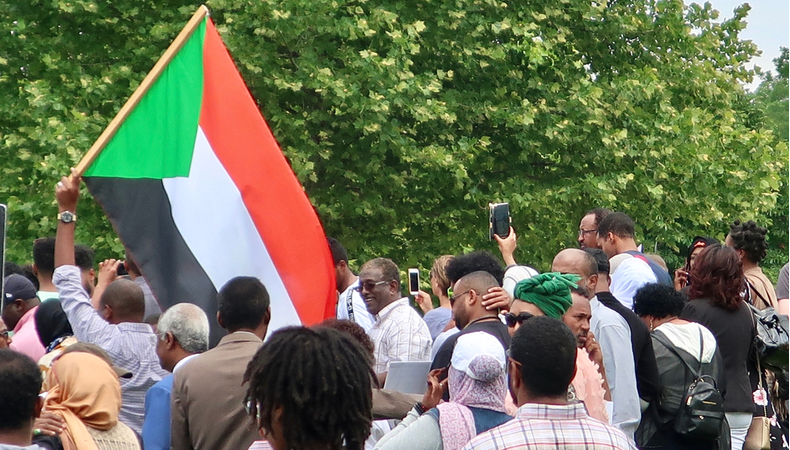Protests escalate in Sudan and Security responds violently


Reuters reported that hundreds of thousands gathered, heading towards the Sudanese presidential palace in protest against the ‘coup’ carried out by the army chief, Abdel Fattah Al-Burhan, on October 25, and the detention of the Prime Minister, Abdullah Hamdouk, who was later released.
The page of the ‘Initiative to restore the Syndicate of Engineers’, one of the parties that called for the demonstration, said that ‘our convoys succeeded in reaching the palace despite the military arsenals and excessive violence from the apparatus of the coup regime,’ but said that ‘the coup authority succeeded temporarily in dispersing the forces of the demonstrators.’
The statement added: We reaffirm that the sit-in will come back, and that the fall is coming no matter how much you try behind the arsenals of soldiers, rifles and bullets. Hours ago, the initiative’s page said that the demonstrators were met with ‘excessive repression by firing bullets and excessive violence in the face of the revolutionaries in the east of the Nile in front of the Manshiya Bridge with a number of injuries.
The ‘Al-Hurra’ website said that ‘the security forces fired tear gas heavily at the demonstrators.’ The demonstrators reject the military’s participation at all in the government, which is supposed to lead a transition process towards free elections.
Although security forces closed bridges over the Nile to the capital early on Sunday, protesters managed to cross a bridge linking the city of Omdurman to central Khartoum, but were met with heavy tear gas as witnesses told Reuters. Reuters sources also saw demonstrators crossing a bridge from Bahri, north of Khartoum, to the capital. Pictures posted on social media showed protests taking place in several other cities, including Port Sudan, Al Din, Madani, and Kassala.
The Central Committee of Sudanese Doctors says that 45 people have been killed in the crackdown on protesters since the ‘October 25 coup’ carried out by Al-Burhan. Sudanese organizations want to mobilize 45 million Sudanese who live under 300 percent inflation, but this time against the military.
This demonstration is the ninth in a series of demonstrations that continued even after the army signed an agreement on November 21 with Sudanese Prime Minister Abdalla Hamdok, who was under house arrest and released along with other prominent political detainees.
On October 25, Al-Burhan declared a state of emergency in the country, dissolving the Sovereignty Council that he headed, and dissolving the Hamdok government, and other institutions that were supposed to secure a democratic path towards elections and civilian rule.
Days after the coup, Al-Burhan announced the formation of a new Sovereignty Council, which he retained his presidency. Al-Burhan announced the suspension of some articles in the constitutional document, and stressed commitment to the Juba Peace Agreement. He stressed that ‘the armed forces will continue the democratic transition until the handover of power to a civilian government.’ He said that a new government will be formed of ‘independent national competencies’ to run the country’s affairs, until elections are held in July 2023.
Al-Burhan stated that the transitional phase was based on conciliation between the components of the civil and military partnership, but the consensually turned into “conflict and divisions,” which portends a grave danger.
According to the agreement signed in November, under which Hamdok will return to his position, elections are scheduled for 2023. Al-Burhan had indicated earlier this month that he would exit politics after the elections. Hamdok warned on Saturday evening in a statement that ‘the Sudanese revolution is facing a major setback, and that political intransigence on all sides threatens the country’s unity and stability.’
Civilian parties that have organized several mass protests are demanding full civilian rule under the slogan ‘No negotiation, no partnership, no legitimacy.’ In a statement, the Union of Protesting Forces supported the resistance committees’ calls for sit-ins, strikes and more protests, scheduled for December 25 and 30.




